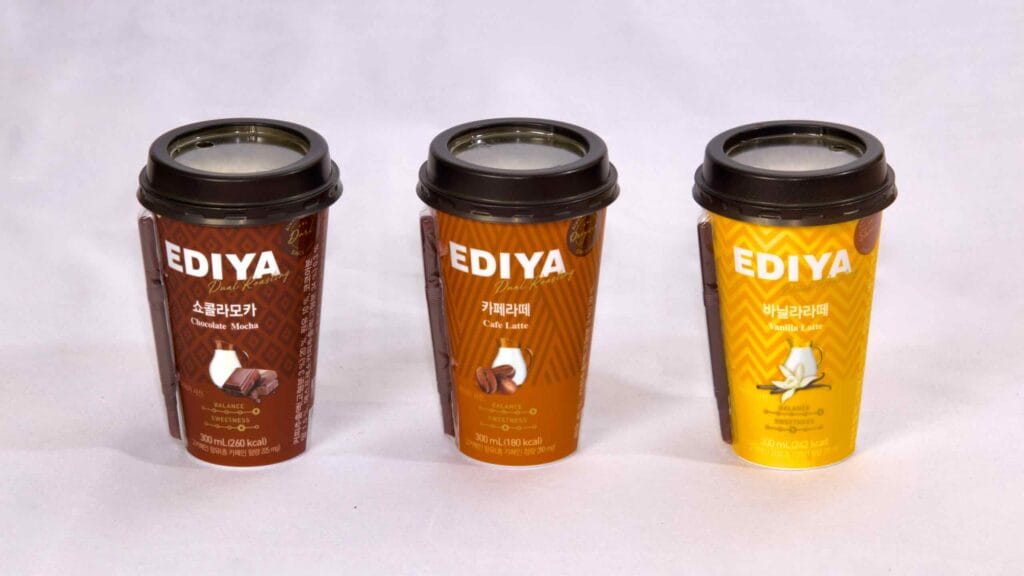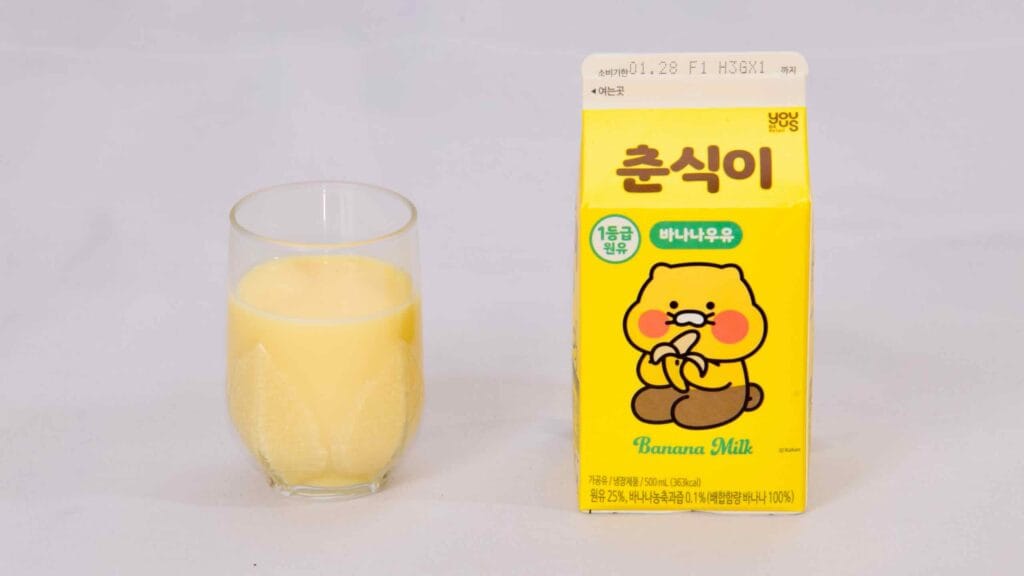Beverage Bar
(Korean Convenience Stores)
Thirsty! Convenience stores stock their coolers with everything from Coke to strawberry milk. You can find something hydrating. Something to keep you up. And something to liven up the night.
Coffee, Tea & Herbs
Coffee, the forbidden drink. Besides Starbucks and the thousands of coffee shops in Korea, you can also find rows and rows of canned coffee in convenience stores.
From cold brew to mocha to latte, Barista Rules serves up a variety of flavors. Some are sugary. Some are super sugary.
Vita 500 Gold (비타500골드) is a popular vitamin C drink. The 500 shows the amount of vitamin C in this sucker: 500% your daily dose.
If you’ve hit the soju a little too hard last night, try a bottle of 헛개차 (heot gae-cha; hovenia dulis tea). Though the flavor is bitter, the tea is a famous hangover cure in Japan, China, and Korea.
Pouch Drinks

Summer here? Sun hot? Convenience stores giveth.
Find a freezer full of cups of ice in the drink aisle. Grab one. This is part one.
Nearby, you’ll spot a box filled with plastic pouches. They’re labeled lemonade, latté, grapefruit, and more. The sweet nectar inside is part two.
Pay first. Then, put the parts together. Rip the top off the pouch and pour it into your cup of ice. Voilà!
Wasteful? You bet. Colder than the refrigerated drinks? Marginally.
Milk & Yogurt
Got milk? Need milk? Which flavor?
Convenience store options will overwhelm you. Banana milk. Strawberry Milk. Coffee milk. Red bean milk. They also have exotic flavors called chocolate milk and milk milk (it’s milk).
Yogurt (요구르트) is beloved among kids from six to sixty. Everywhere you’ll find palm sized, foil topped bottles carrying sour yogurt shots.
Adult Beverages

For good or bad, alcohol’s fame burns bright in Korea. The trifecta of spirits includes beer (맥주; maekju), soju (소주), and makgeolli (막걸리).
Beer
In the early 20th century, western nations introduced beer to Korea. In less than a century, it burrowed deep into the culture. Now it’s flowing in every restaurant, company dinner, or picnic in the park.
The most popular beer is a domestic tallboy (500 ml) lager. But, with relaxed import laws, you’ll find more German, Japanese, and American brands at your local convenience store.
Cass (OB) and Hite dominate the domestic beer market. Notorious for their “lighter taste,” price and national pride help push tankers of their brew into thirsty stomachs.
Soju
If beer is the foreign prince, then soju is the homegrown king. This humble rice liquor anointed Korea “one of the most hard liquor consuming countries on earth.”
Korea birthed soju in the 13th century after Mongols introduced distilling techniques. The old-school process involved distilling alcohol from fermented grains, like rice. This gave a 30-35% ABV rice liquor.
Today, companies tamed down the alcohol content. The rice spirit hovers around 15-18% ABV.
Many foreigners underestimate the power of soju. They think, “it’s only 17%. That’s like a strong wine.” Be nice. Leave a pillow in the storm drain. That’s where they’ll regain consciousness.
Most Koreans drink soju from shot glasses for a reason.
Makgeolli
Makgeolli holds a special place in the alcohol pantheon. The cloudy rice wine is the oldest alcoholic beverage in Korea.
In convenience stores, they come in opaque 750 ml bottles near the soju. Somewhat sour, somewhat sweet, makgeolli‘s ABV hovers somewhere between 6-9%.
You can also find makgeolli restaurants that serve a chilled, fresh brew in an open pot. Use a ladle to fill your cup and chow down on buchimgae (부침개), a fried, savory pancake.
Somaek (소맥)
Do you enjoy a fine portmanteau? Korea has lots. Handphone (핸드폰), or smartphone. Officetel (오피스텔), or office hotel.
Try this one. Soju (소주) + Maekju (맥주; beer) = Somaek (소맥).
Pour a little soju in a glass. Fill the rest with Cass. What do you get? Somaek, the favored Korean cocktail.




